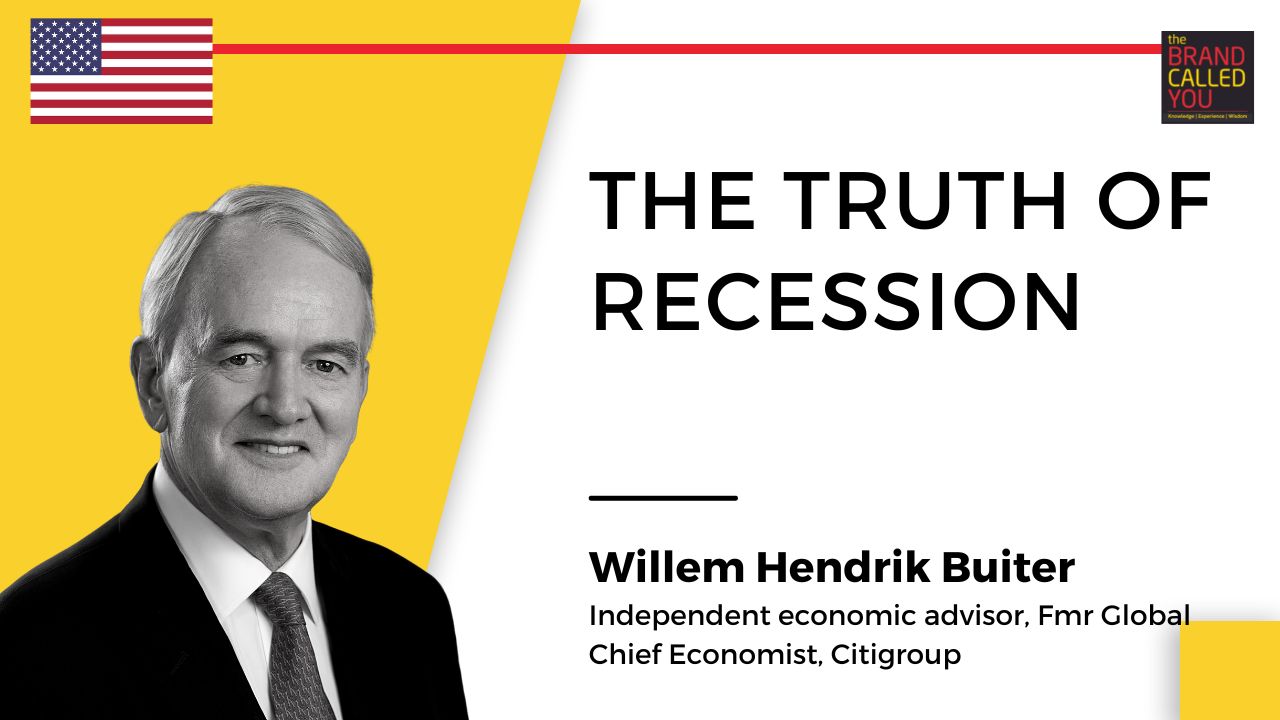Willem Hendrik Buiter, Independent Economic Advisor, Fmr Global Chief Economist, Citigroup
- Willem is an independent economic advisor.
- He is a speaker, a commentator, and an expert.
Podcast
Overview
With COVID impacting the global economy, the markets are still in the process of coming out of its effects. Warnings of global recession have been floating across the world. Today, we have an independent economist, Mr. Willem Hendrik Buiter, who takes us through the reality of recession and other global economic problems and solutions.
[00:38] – About Willem Hendrik Buiter
- Willem is an independent economic advisor.
- He is a speaker, a commentator, and an expert.
- He is the former global chief economist at Citigroup.
- Willem has been appointed as the Commander of the British Empire in 2000.
- He is also the author of seven books.
- In 1997, Willem was called upon unexpectedly as he wasn’t a British citizen at the time to serve on a multi-policy committee at the Bank of England.
- After doing that for two years, my interest in applying academic economics in areas outside of academia has been permanent.
[04:19] – What are some key thoughts you have about the world economy?
- The global economy is most likely set for a recession.
- A material, non-trivial economic slowdown could last up to two years. This is mostly the result of monetary tightening in all the advanced economies.
- We have to get inflation out of the system and cannot live with seven or eight-percent inflation
- The only way to eliminate inflation in a lasting way is to slow down economic activity for a while.
- A longer term development is the consequence of the geopolitical rivalry between the USA and China and the bifurcation of the global economy into respective blocks.
- The fact that these blocks will be imperfectly communicating with each other financially and in terms of trade, that there will be a cost in terms of potential output growth.
- Finally, the economic consequences of climate change and the private and public sector response to it are likely to impose another non-trivial burden on corporations and indeed households as we start paying more for our greener energy in years to come.
07:40 – What should political leaders be doing to counter recession, geopolitical rivalry, and climate change?
- These are realities we cannot get away with. One thing politicians can do, for a change, is being honest with their constituents and recognize that there will be an economic cost to regain control of inflation.
- There will be an economic costs associated with reassuring and diversification of supply lines, and there will inevitably be going to be real costs in terms of people’s pockets associated with getting hold of climate change and making the world safe for our children.
- Fiscal mechanisms for protecting and compensating people at the lower end of the income scale, for the consequences of both, the fight against inflation of deglobalization and of the fight against climate change.
- This will have to be worked out through imaginative, brave, and costly political-economic measures.
[14:36] – What are some of the trends you are seeing in the digital economy and the consumption of data?
- When you can process enormous amount of data, it is also possible to generate enormous amount of data, much of which will be rubbish.
- What we need from it is the information structure that allows us to read out the lies from the truth and the nonsense from the facts.
- No source of information can be considered completely authentic because even if they are honest, they can be wrong, given the speed with which facts and theories are being delivered.
- There is very little time to reflect, check and double check.
RESOURCES:
You can connect with Willem H, Buiter: LinkedIn
Visit: https://willembuiter.com/
Enjoy this podcast?
If you learned new insights about the world economy, subscribe and share it with friends!
Love to give us 5 stars? ⭐⭐⭐⭐⭐ If you do, we’d love a review from you. Help us reach more people to keep them in the know as we talk to leaders, high achievers, and thought leaders from diverse backgrounds and nationalities. Excellence can come from anywhere; stay in the know, and hear from emergent high achievers and gurus.
Stay updated with what’s shaping the world today through the latest The Brand Called You Podcast episode. Follow us on iTunes, Spotify, and Anchor.fm.
Don’t forget to follow and message us on these platforms!
Website: https://tbcy.in/
Facebook: https://www.facebook.com/followtbcy
LinkedIn: https://www.linkedin.com/company/tbcy/
Twitter: https://twitter.com/followtbcy
YouTube: https://www.youtube.com/c/followtbcy
Thanks for listening!
Profile
- Willem is an independent economic advisor.
- He is a speaker, a commentator, and an expert.
- He is the former global chief economist at Citigroup.
- Willem has been appointed as the Commander of the British Empire in 2000.
- He is also the author of seven books.
- In 1997, Willem was called upon unexpectedly as he wasn’t a British citizen at the time to serve on a multi-policy committee at the Bank of England.
- After doing that for two years, my interest in applying academic economics in areas outside of academia has been permanent.


